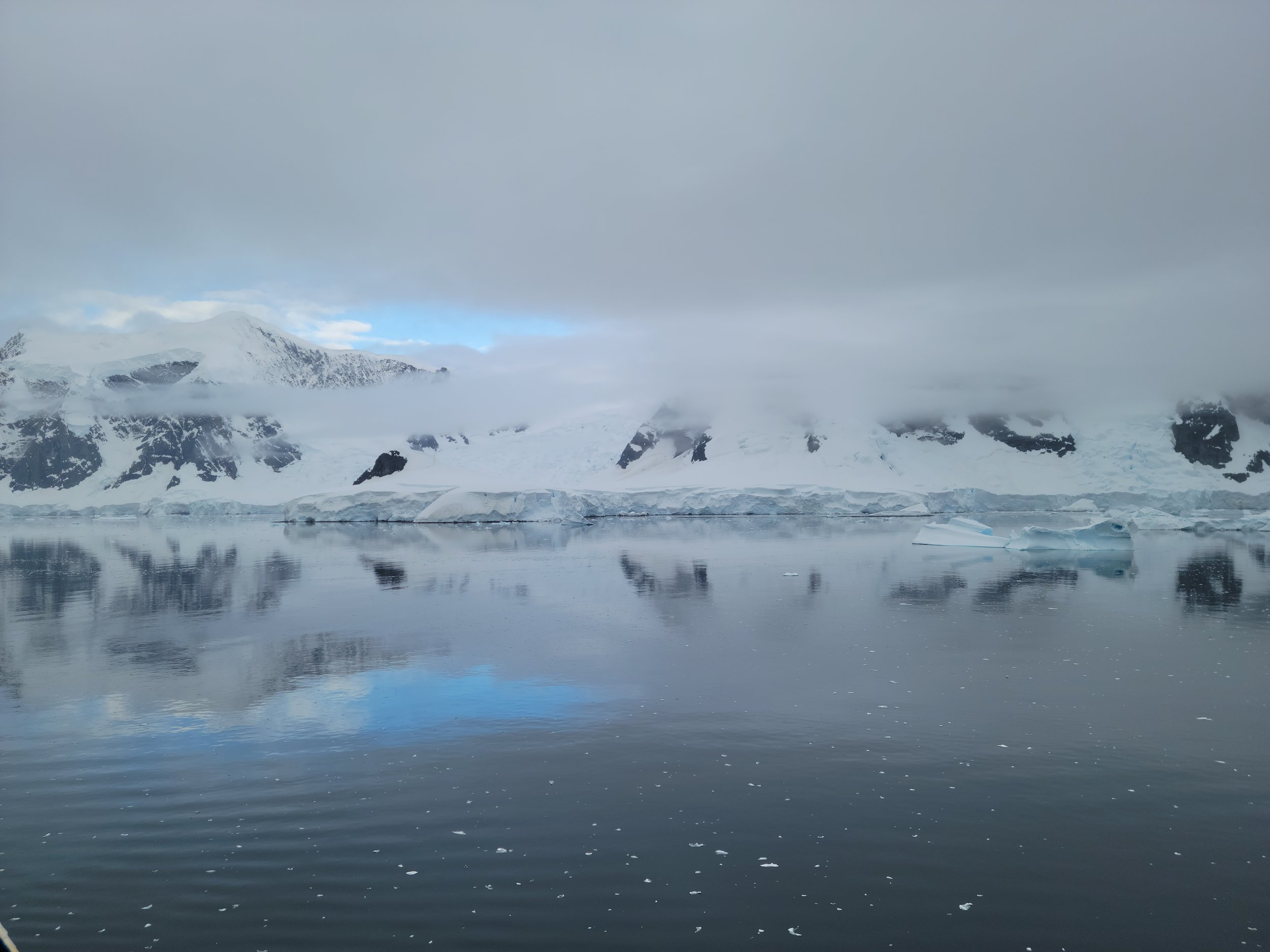
Antarctica
Locations along the Antarctica Peninsula where we visited during our voyage in 2023
Terra Australis
Early Western culture theorized of a vast continent in the southern part of the globe known as Terra Australis, now known as Antarctica. It is Earth's southernmost and least-populated continent and yet, this vast and unknown land has always been a sight for curious wanderers. Since its discovery in the early 1800s, a global sea race began to claim this frozen desert. The hunt for whales and seals led to the extinction or near extinction of much of its marine life.[1]
Our voyage to Antarctica gave us further clarity into how colonization on a global scale has affected our southern pole. Within the last 50 years, the Polar Region has warmed by 1°C and affecting the ecology, and leading to a significant decline in marine life population due to the loss of stable ice.[2] Our observations here showed us what happened in the past, the current challenges facing the wildlife and the future consequences caused by human interference on this important unclaimed continent.
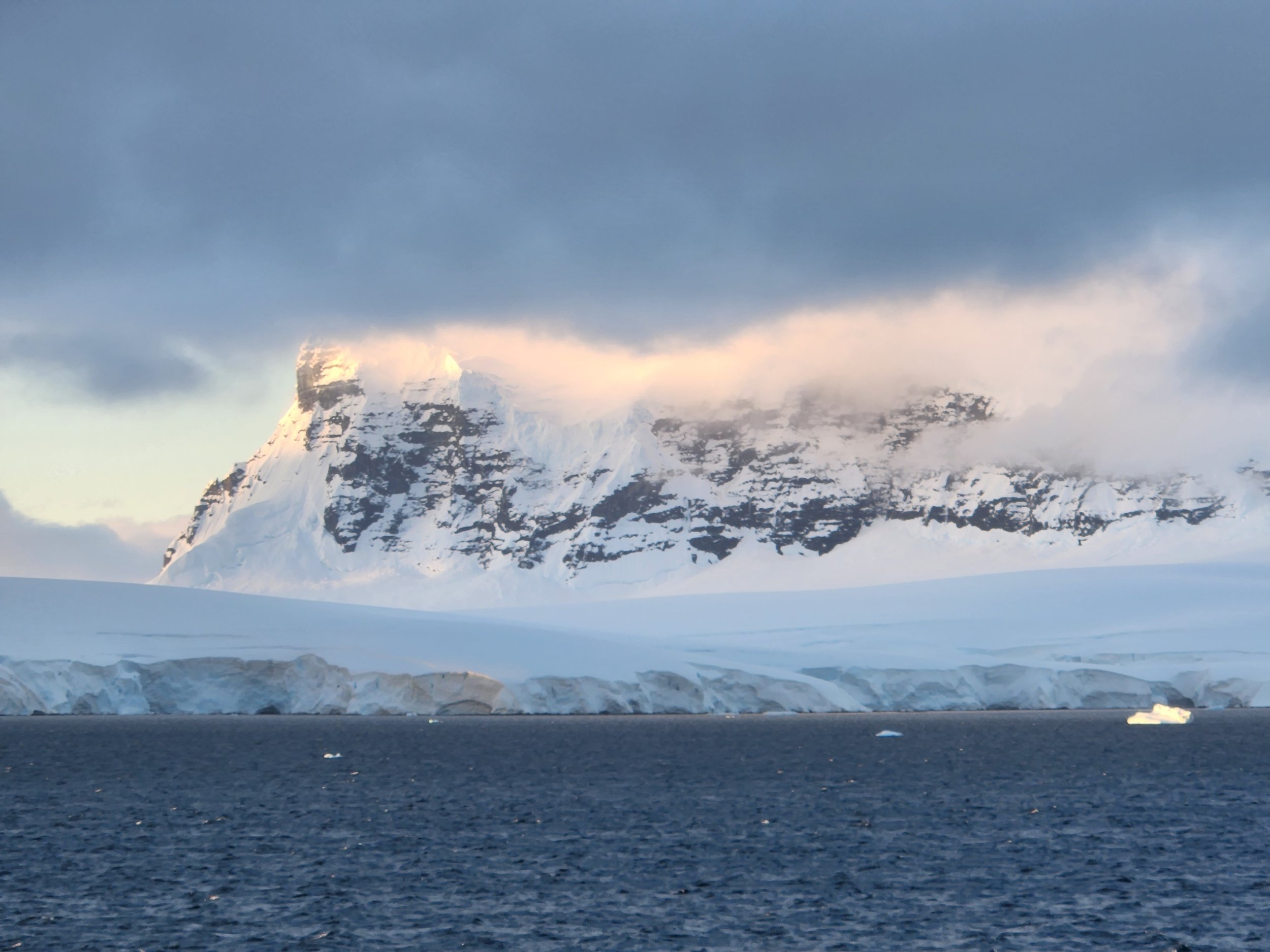
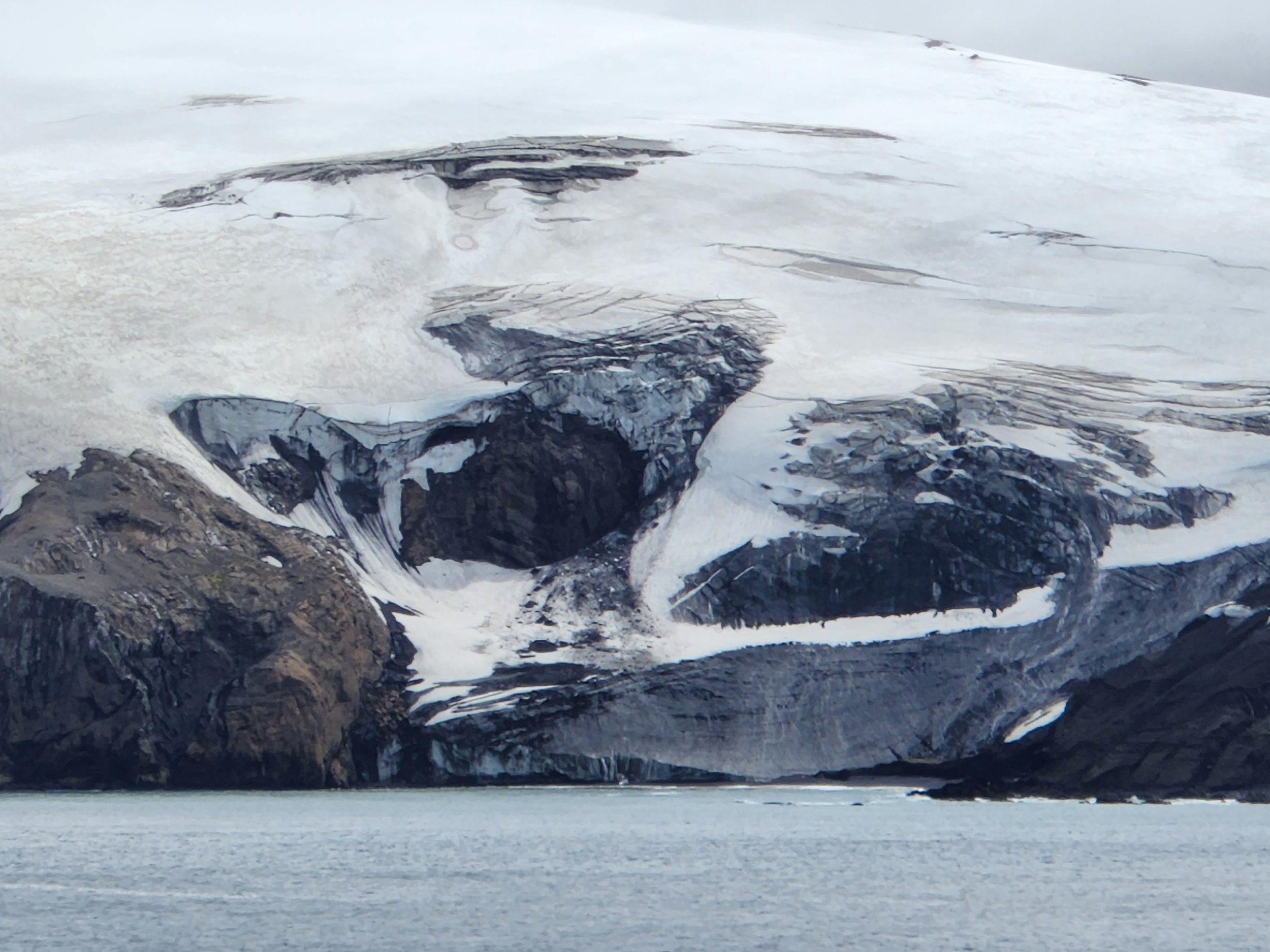
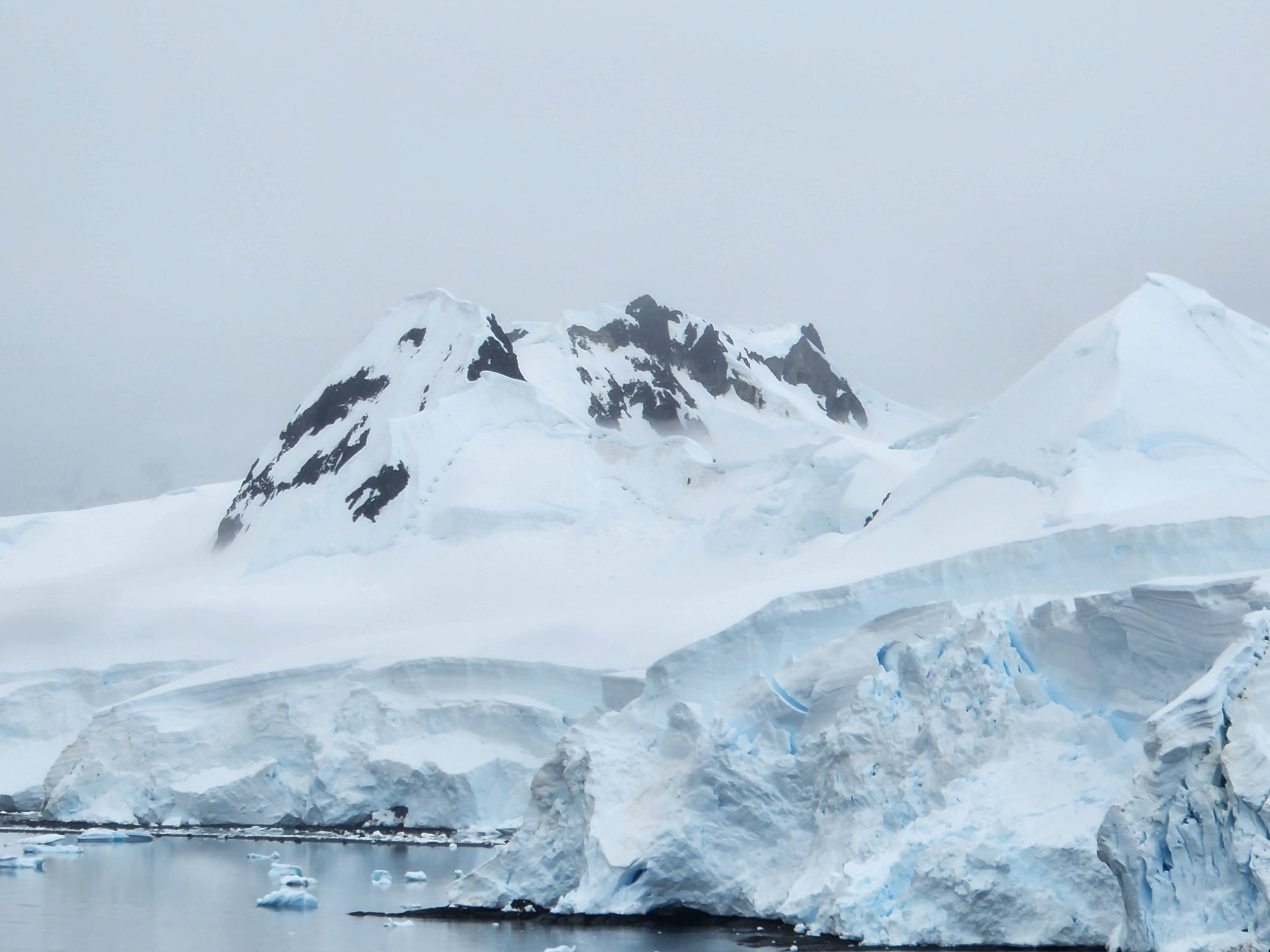
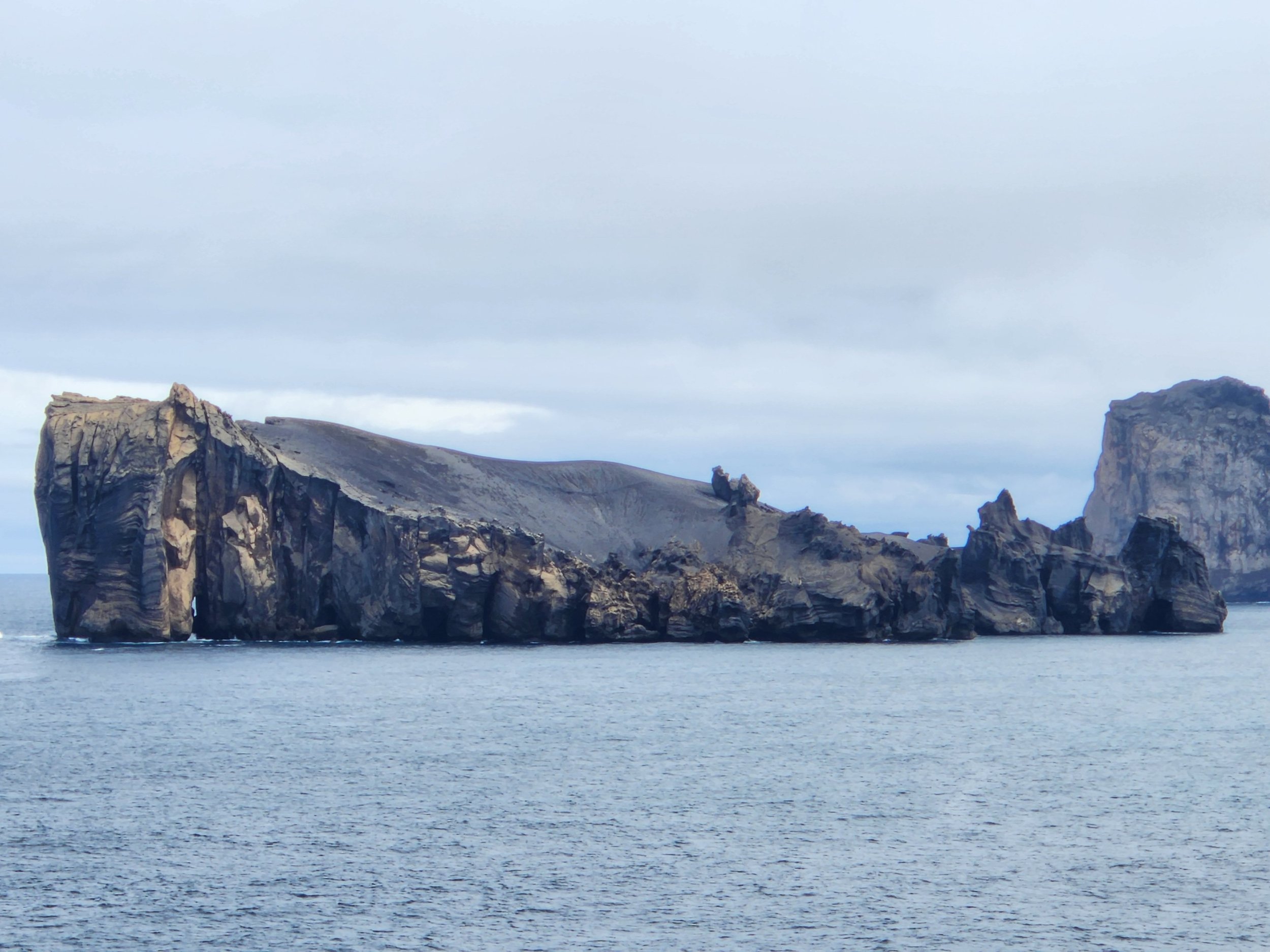

Whaling in Antarctica
Antarctica whaling
began in 1904
A whale processing station at Grytviken, South Georgia was built in 1904. The whaling industry period existed until the 1970s while still persisting until the late 1900s.[4] Over 2.9 million whales have been hunted in that period.
Humpback whales were the initial target due to them being the slowest species of whales. They migrated south during the austral summer to feed on krill and phytoplankton blooms. As technology advanced, humans hunted Blue Whales, Fin Whales, Sei whales, then afterward Minke; each specifies less profitable for the industry. Whaling species that once totaled over 25,000 have now declined to 10% or as little as 3000 in some species.[5]
Once a common sight, early whalers could see the mist of the blowholes in the thousands. Sadly, now only a few sightings of whales were observed during our four days sailing along the continent. In less than the time of a human lifespan, we nearly hunted these animals to extinction.
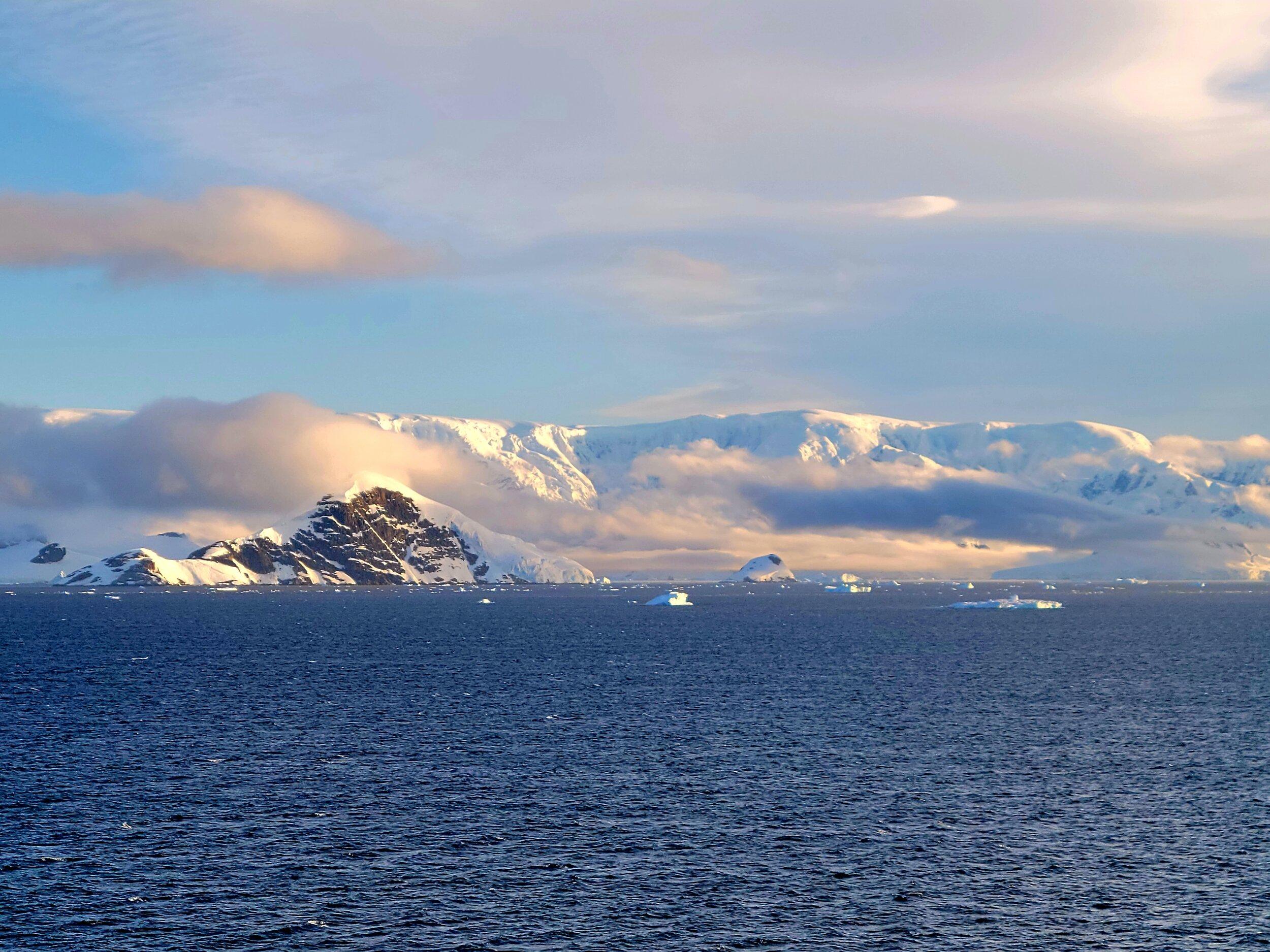
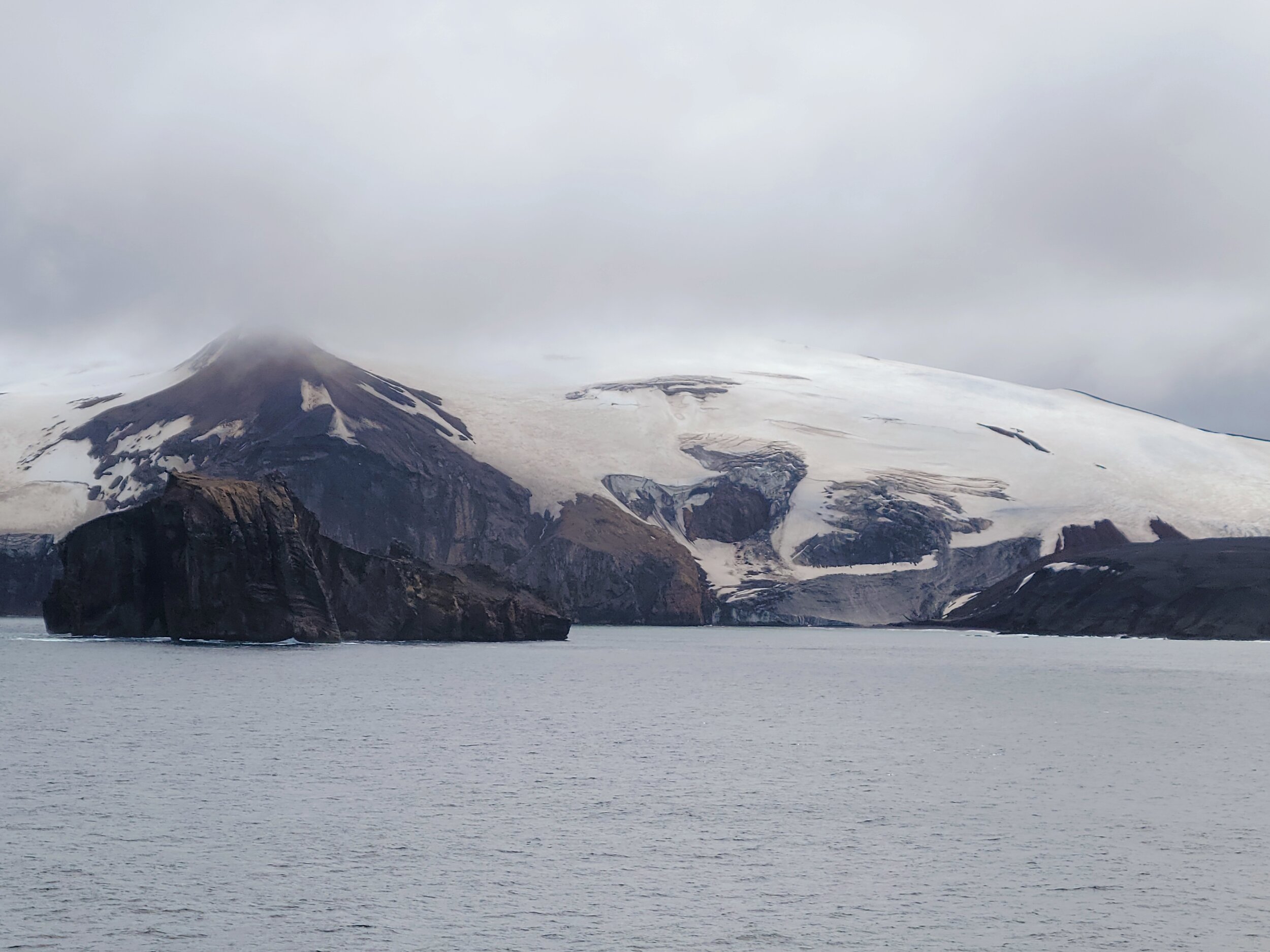

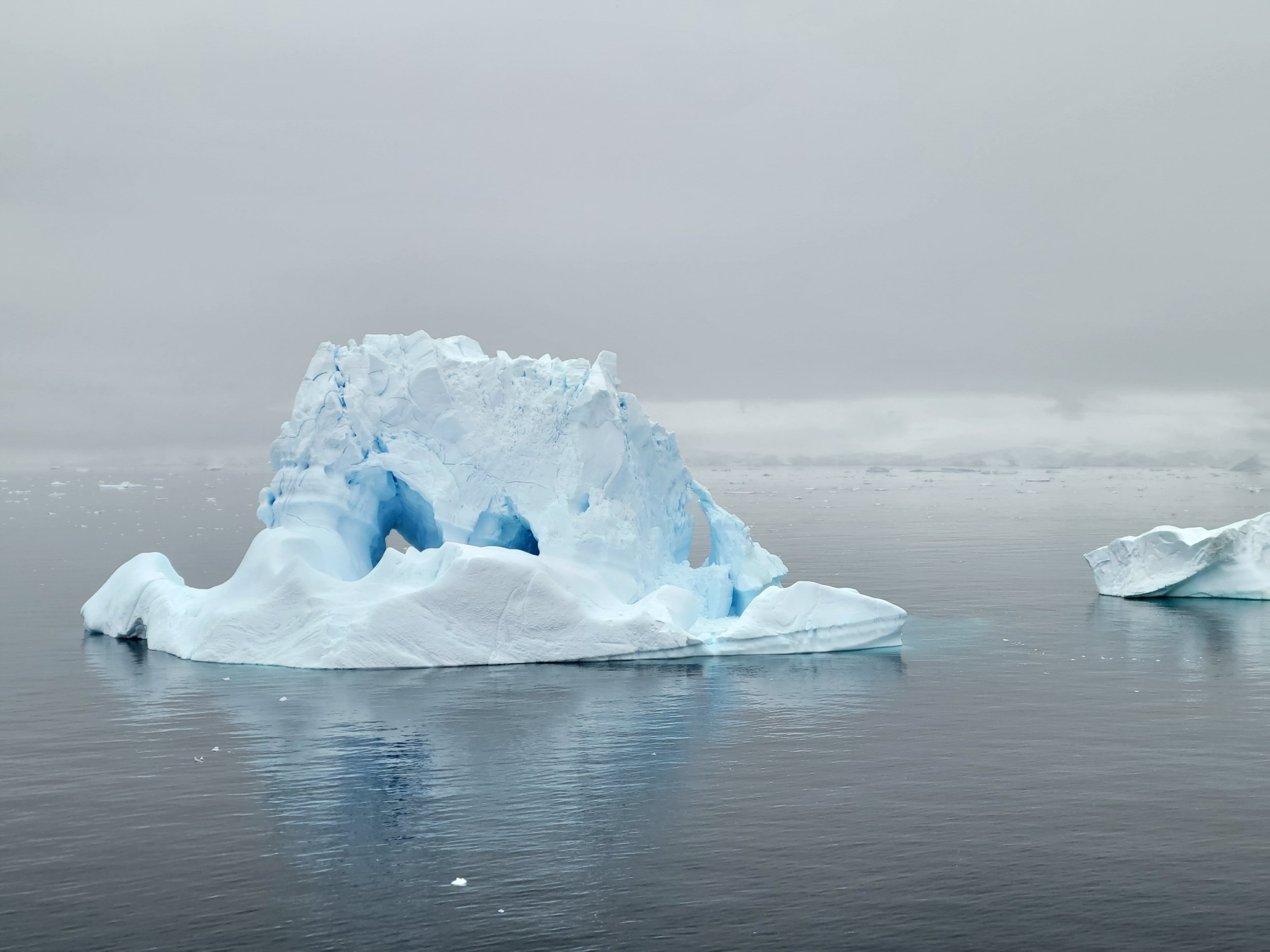

King Penguins
As explorer tourists, we visited The Falkan Islands on January 8th, 2023, on the way down to The Antarctica Peninsula. There we encountered a colony of penguins that nest and breed on this remote island (about 1 million every summer!).[6]
This large King Penguin colony was located in the northeastern part of The Falkan Islands, on a beach between Cows Bay and Loch Head Pond.
If you plan to visit to make similar observations of this colony, we advise any adventuring tourists to be mindful of their impacts on these fragile ecosystems and minimize your influence on these areas that are uninhabited by humans. Do not leave any sign you were around or disturb the wildlife.
Colony of King Penguins
Taken in January 2022 during our Antarctic trip to The Falkan Islands
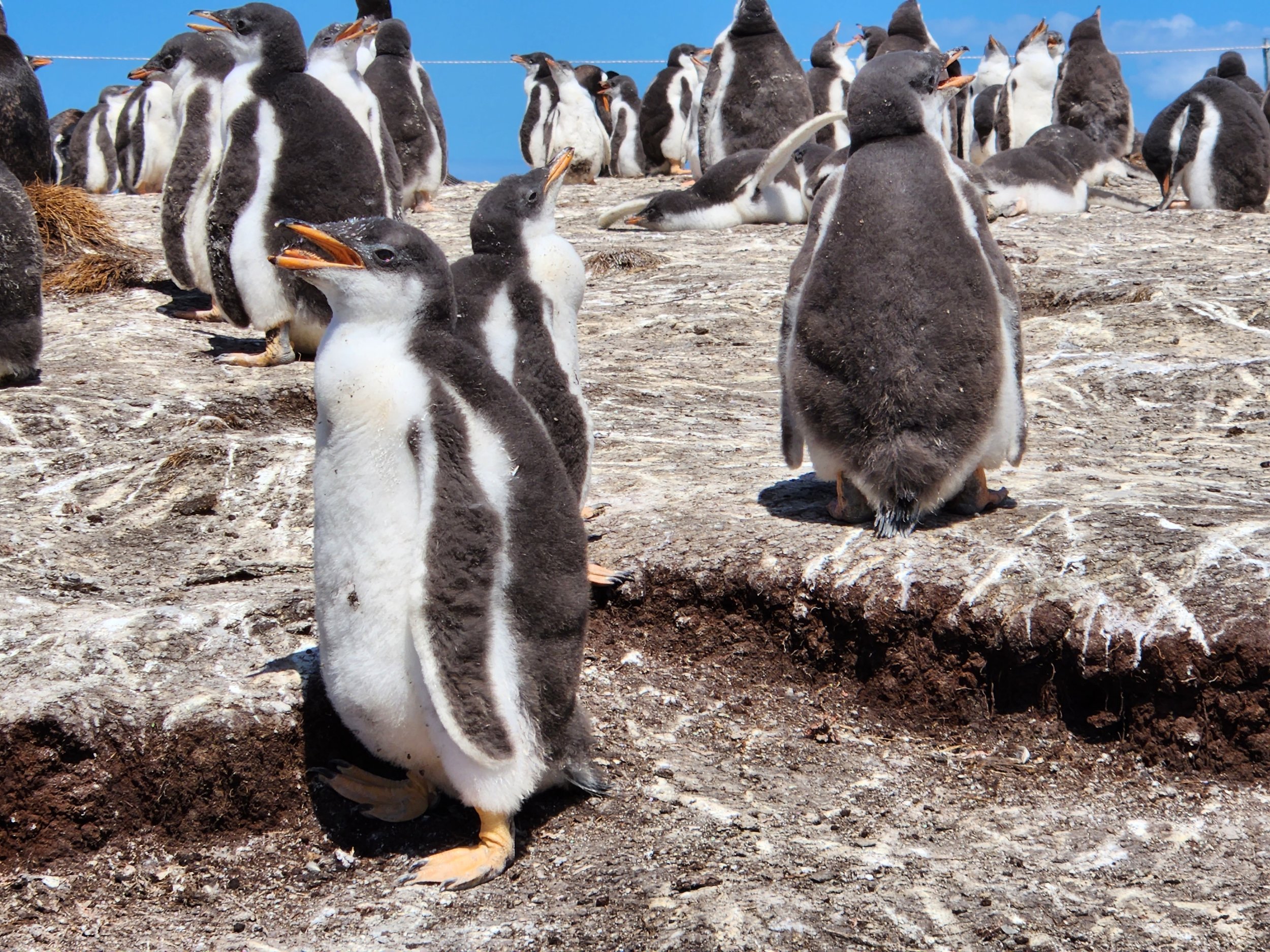
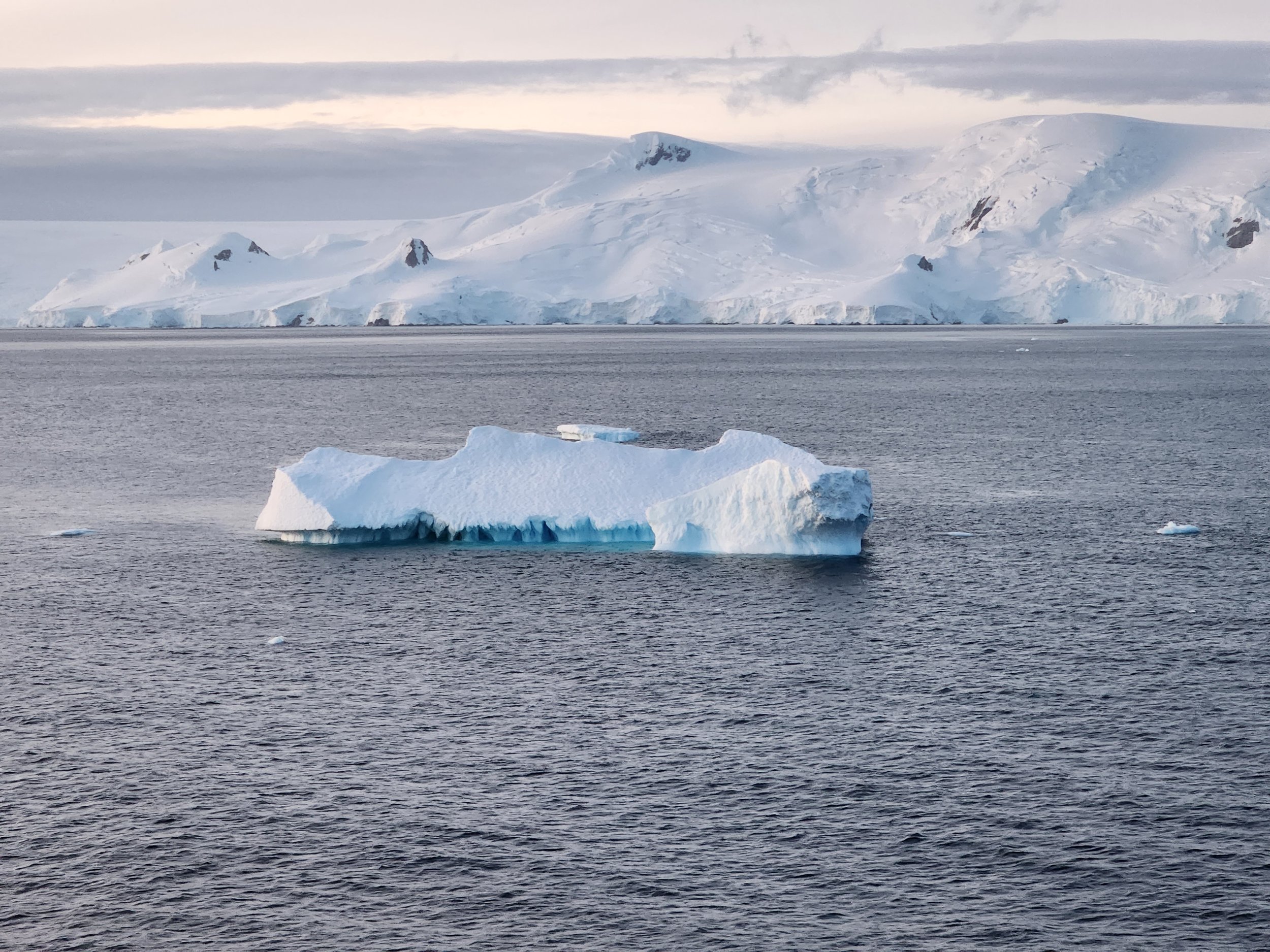
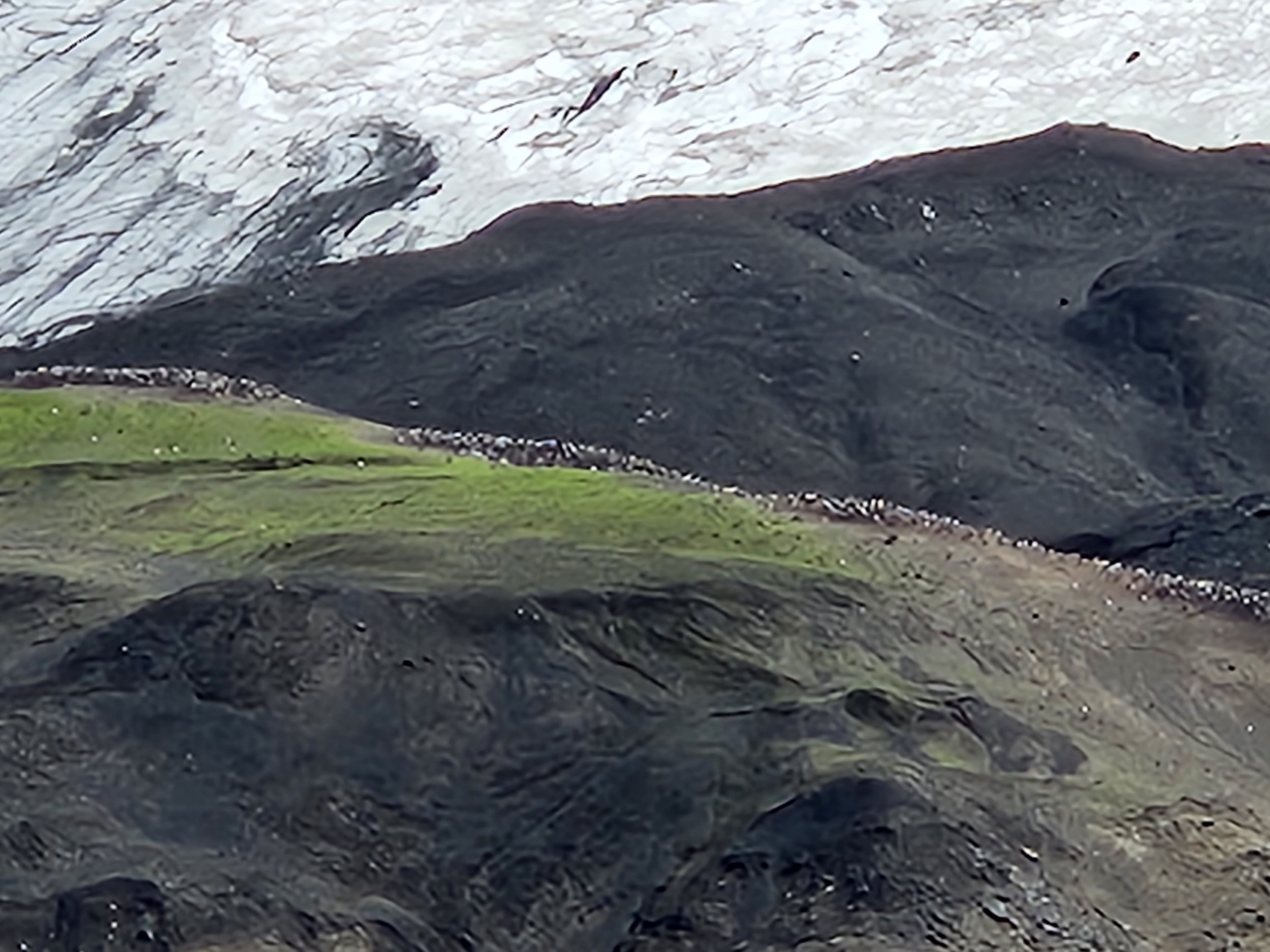
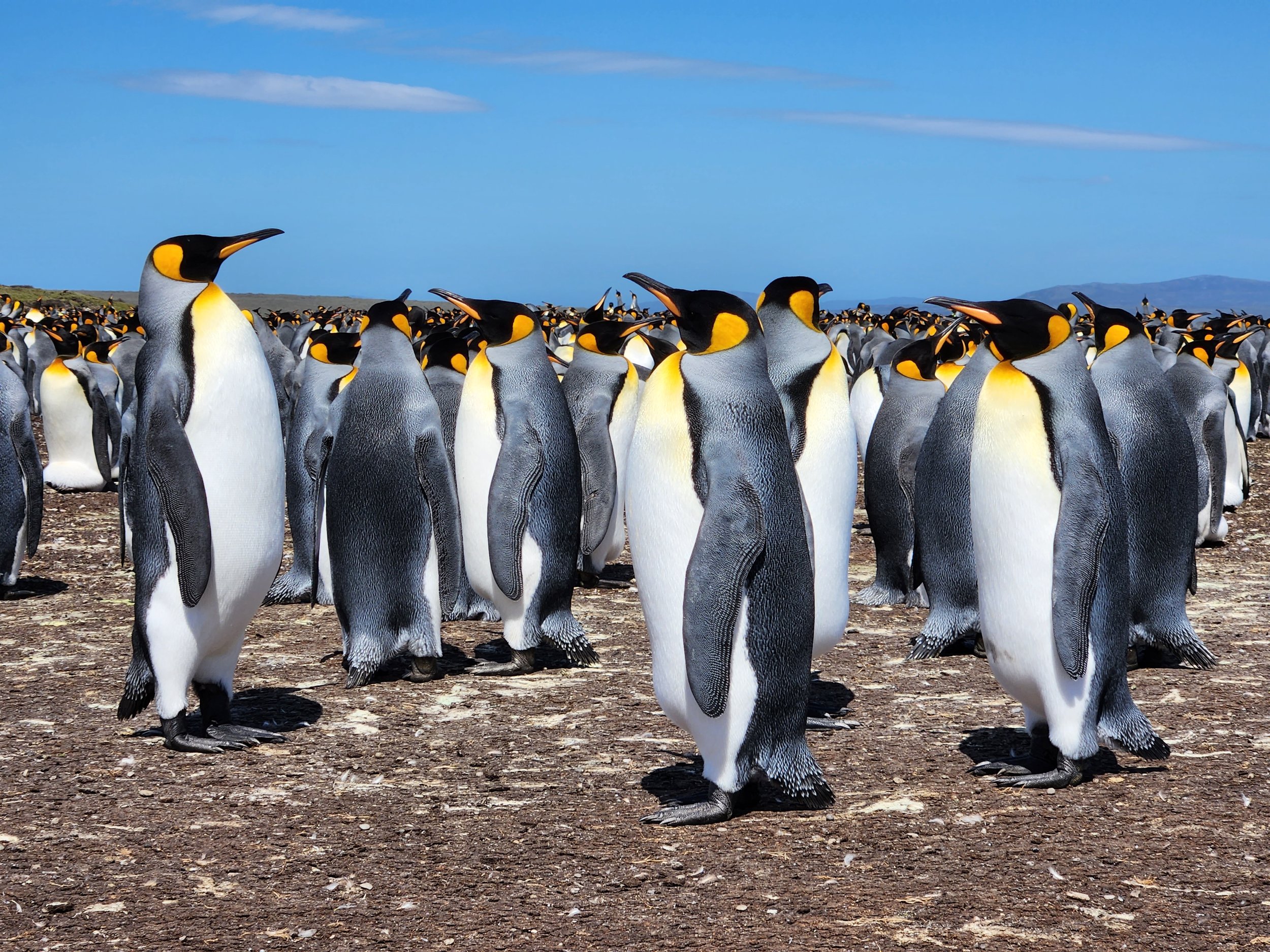

Gentoo Penguins
We had pre-booked our tour prior to arriving -good thing we did! The tours for the penguins were selling out and transportation to these areas were limited in space. After a short bus ride from the Jetty Visitor Centre, our tour started at the Magellanic Penguin Breeding Ground which was mostly made up of cliffs and rocky terrain. These types of penguins prefer nesting in bushes or rocky areas under cliffs. After a half an hour of walking east through the beach, we arrive at the Gentoo penguin colony in the northeaster part of the Falkan Islands at Gypsy Cove.
The penguins here are residents of the island all year round! The breeding season starts in September and the young penguins are moulted and matured by late January. With their feathers now fully developed, the young penguins will be able to survive in the waters are now able to hunt for food. The Gentoo penguins don’t venture further out that 20km from the islands.[7]
The Falkan Islands attract many tourists who come to see the Magellanic, Gentoo, and King Penguins. We saw volunteers at Gypsy Cove patrolling around the colony to ensure tourists maintained a 2-meter distance from the wildlife and to be careful not to startle the newly hatched penguins before their feathers were fully grown in.
Penguins rely on their feathers to keep warm and dry in the frigid, icy waters they live in. Their thick, overlapping feathers trap air and form a waterproof layer, while a unique oil produced by a gland near their tail helps to insulate them further.
Colony of Gentoo Penguins
Taken with a mounted GoPro in January 2022 during our Antarctic trip to The Falkan Islands
The International Association of Antarctica Tour Operators
While we were travelling towards Antarctica, we made a pledge to return as Antarctic Ambassadors to advocate for responsible travel and upholding the values to protect and preserve this important region.
We have submitted our application to receive official registration of Ambassadorship from the IAATO (The International Association of Antarctica Tour Operators).
An Antarctic Ambassador is someone who…
Loves and respects the region,
Educates others by sharing their Antarctic experiences,
Advocates for Antarctica when opportunities arise, and
Protects the region by making positive changes at home. [3]


[1] The National Archives. “The Search for ‘Terra Australis’ - the National Archives.” The National Archives, 9 Aug. 2022, www.nationalarchives.gov.uk/education/resources/the-search-for-terra-australis/#:~:text=This%20continent%2C%20called%20'Terra%20Australis,Cook%20would%20eventually%20come%20to.
[2] Rantanen, Mika, et al. “The Arctic Has Warmed Nearly Four Times Faster Than the Globe Since 1979.” Communications Earth & Environment, vol. 3, no. 1, Aug. 2022, https://doi.org/10.1038/s43247-022-00498-3.
[3] IAATO. “About Antarctic Ambassadors - IAATO.” IAATO, 20 Apr. 2024, iaato.org/antarctic-ambassadors.
[4] Ryan. “Antarctica’s Whaling History and Abandoned Whaling Stations | Antarctica Cruises.” Antarctica Cruises, www.antarcticacruises.com/guide/antarctica-whaling-history-and-abandoned-whaling-stations.
[5] Whaling in Antarctica. www.coolantarctica.com/Antarctica%20fact%20file/wildlife/whales/whaling1.php.
[6] ---. “King - Falklands Conservation.” Falklands Conservation, 13 Aug. 2020, falklandsconservation.com/king.
[7] ---. “Gentoo - Falklands Conservation.” Falklands Conservation, 13 Aug. 2020, falklandsconservation.com/gentoo.









